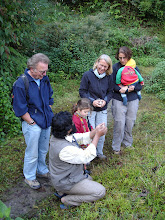Mr.Madan Tamang has been brutally killed in Darjeeling today. He was one of the oldest tourism entrepreneurs of the region and a noted intellectual from the East Himalaya. His family runs an well established tourism infrastructure at Meghma on the famous Sandakphu Trek Route, which runs through the Singalila National Park for the past many years and he himself organized an accommodation at Darjeeling in his place of residence. Most of his family members are linked with the tourism industry. He had a great vision for tourism and organic agriculture. He had carried the brand of East Himalaya, mainly Darjeeling to Japan and many other countries of the world mainly in the field of adventure tourism and ecotourism.
Again there was a rumor of a Bandh(strike)from today, again disturbing tourist movement in Darjeeling and harassment to them in the whole of Sikkim-North Bengal region.
The Northeastern region of India gets a tourism peak season only for a period of 60 to 80 days, once during summer and the other during Durga Puja vacations. The tourism over here has mainly developed with the help of local entrepreneurs and is gradually leaving behind the stagnant tea industry. The most visited destinations are Sikkim, North of West Bengal (Darjeeling Hills and Dooars), Assam and Meghalaya. The first two and the last two being interdependent as popular circuits.
This summer which is the longest peak tourism season and service providers fully dependent on it, almost all the tourism infrastructure were packed till the series of political strikes (Bandhs) that took place:
14th May, 2010: Siliguri 24 hours Bandh.
15th & 16th May, 2010: Darjeeling Hills Bandh 48 hours.
17th, 18th & 19th May, 2010: Dooars 72 hours Bandh.
18th & 19th May, 2010: Meghalaya (Khasi & Jaintia Hills) Bandh.
More than 12 tourist vehicles have been attacked and vandalized.
The tradition continues...
This is the peak tourist time, Government of India has given special LTC for Government employees visiting Northeast. Special Northeast India campaigns are made with crores of expenditure. Subsidised loans for creating tourism infrastructure has been alloted. Hundreds of rural tourism sites have been added to the conventional destinations. Tourism was being used as a tool to mainstream our communities living in isolation. Booking were lined up for 2011, but alas, everytime political Bandhs during peak tourist season shaterring the brand of Northeast.
The service tax revenue, which is mostly from tourism in North Bengal region was increasing by 8 to 10% every year till 2007-8. Since 2008-9, when the Bandhs started, the revenue declined by more than 40% and the trend continues. Imagine the other revenues linked to tourism (transport taxes, fuel sur-charge and taxes, restaurant and accommodation taxes etc), which is said to be six times the direct tourism revenue is lost at the same rate.
For every family as tourists, there are 10 local people who are engaged. The largest generator of employment, tourism is today hit by regular Bandhs during peak tourist seasons.
Tourists are our Guests and as per the Indian tradition 'Guests are our God'. It is not a part of the Indian culture to invite guests to our region and insult them with Bandhs. They contribute to the destination they visit, in a responsible tourism pattern they even help to conserve our rich natural and cultural resources. They hardly have any knowledge or connection with our local political problems. They come here for peace and hospitality. Hence, we have no right to make tourists/guests/visitors a part of our Bandhs. We have to come to a political consensus on this issue and make this a part of our constitution.
Friday, May 21, 2010
Subscribe to:
Posts (Atom)

